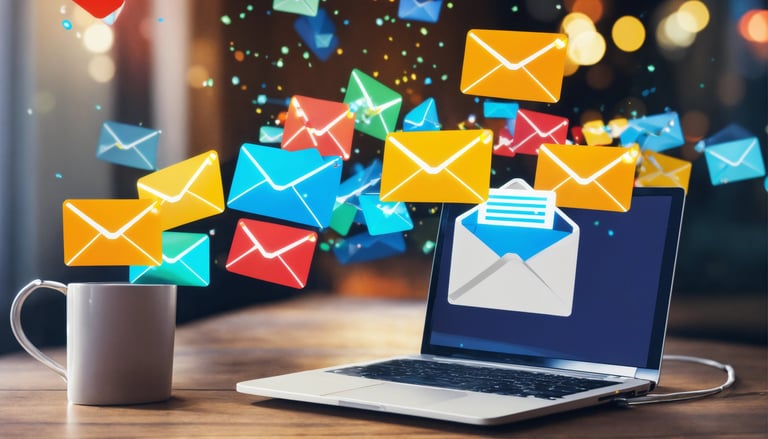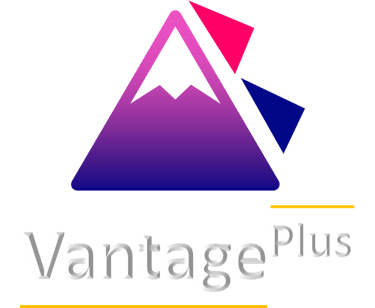
Best Lead Generation Strategies for maximizing results
Unlock the potential of performance-based lead generation with our expert insights. Discover proven strategies and techniques to enhance your digital marketing ROI, improve lead quality, and drive effective customer acquisition. Dive into advanced tactics for both B2B and B2C marketing, leveraging marketing automation, A/B testing, and social media strategies to transform your business growth. Perfect for marketers aiming for tangible results.
LEAD GENERATION
Bashaar Jadoon
2/5/202410 min lesen
Customer Acquisition: Proven Strategies and Techniques
Harnessing the power of performance-based lead generation can be a pivotal tool in the arsenal of customer acquisition strategies for many businesses. This approach holds marketers to a higher standard of accountability, focusing not just on the quantity, but more importantly, the quality of leads generated. Typically, performance-based models revolve around the premise of 'no win, no fee', pushing marketing teams to innovate and maximize the effectiveness of campaigns, thus boosting digital marketing ROI significantly.
Moreover, the landscape of lead generation strategies continues to evolve as new technologies and methodologies emerge. For instance, advancements in data analytics now allow businesses to track customer behavior patterns, enabling them to tailor their marketing efforts specifically towards their target audience. In the realm of digital marketing ROI, not only does this personalized approach accrue more prospective clients, but it also fosters stronger relationships between businesses and customers, increasing both the lifetime value of the customer and the potential for repeat business.
Comparing B2B and B2C Marketing Tactics
B2B and B2C marketing tactics, while sharing some common ground, adopt decidedly different approaches towards customer acquisition. B2B marketing often hinges on building long-term relationships, and hence, focuses on developing lead quality improvement strategies. Prospects are meticulously nurtured through personalized conversations, with a greater emphasis on delivering quality content and establishing expertise. On the other hand, B2C marketing, with a typically larger target audience and shorter sales cycle, prioritizes conversion optimization, utilizing an array of tools to prompt quick buying decisions.
Cost-Per-Acquisition (CPA) marketing plays a significant role in both spheres but carries a different weightage in each. In B2B marketing, the cost of acquiring a customer (CPA) often runs much higher than B2C and is seen as an investment, given the potential for significant lifetime value and recurrent revenue from single customers. Conversely, in B2C marketing, businesses strive to maintain a much lower CPA with campaigns focused on volume sales. B2C marketers frequently use promotional and discount strategies to attract immediate conversions and keep their CPA within manageable limits.
Marketing Automation: A Modern Approach to Lead Nurturing
In the rapidly evolving digital marketing landscape, harnessing the power of technology is imperative for brands aiming to gain a competitive edge. Marketing Automation emerges as an innovative solution, bolstering Performance Marketing Techniques and enhancing overall business efficiency. From managing marketing campaigns across various channels to implying predictive analytics for advanced decision-making, the scope of marketing automation is broad and impactful. It seamlessly ties multiple facets of the marketing strategy, fostering harmonious operations and driving business growth.
A pivotal aspect of marketing automation lies in Sales Funnel Optimization and Targeted Lead Generation. With automated tools, marketers can meticulously map the consumer journey, identify prospect touchpoints, and devise advanced strategies to engage potential customers at every stage. The ability to automate repetitive tasks allows brands to focus on crafting personalized experiences, thereby nurturing leads more successfully. Integrating marketing automation can help businesses streamline their processes, increase conversions, and achieve their marketing objectives more efficiently.
Marketing automation enables efficient management of marketing campaigns across various channels, thus saving time and resources.
It utilizes predictive analytics to facilitate advanced decision-making, enhancing the accuracy and effectiveness of marketing strategies.
The technology promotes harmonious operations by tying together multiple facets of a brand's marketing strategy.
By automating repetitive tasks, brands can focus more on crafting personalized experiences for their target audience.
Sales Funnel Optimization is a crucial aspect facilitated by marketing automation. This involves mapping the consumer journey meticulously to identify prospect touchpoints and devise advanced engagement strategies accordingly.
Targeted Lead Generation is another significant feature powered by automated tools. These tools help in identifying potential customers and engaging them effectively at every stage of their buying journey.
Marketing automation aids in nurturing leads more successfully by enabling brands to deliver personalized customer experiences consistently.
Integration of this technology into business processes can significantly increase conversions due to its efficiency in managing campaigns and engaging leads.
Overall, adopting marketing automation helps businesses streamline their processes and achieve their marketing objectives with greater ease.
In conclusion, the modern approach to lead nurturing involves leveraging cutting-edge technologies like Marketing Automation. This not only enhances operational efficiency but also empowers businesses with data-driven insights for strategic decision-making. As digital transformation continues reshaping industries globally, integrating such innovative solutions will be pivotal for brands aiming to stay ahead in the competitive landscape.


The Role of A/B Testing in Performance Marketing
Performance marketing is a domain where decisions driven by data significantly outperform intuition. A/B testing plays a crucial role in this strategy, providing robust decision-making insights and exploring possibilities for improvement. It involves systematically comparing different versions of a marketing asset to discern which performs better. With the integration of Marketing Analytics for Lead Generation into A/B Testing, it becomes possible to uncover patterns and trends in customer data, helping marketers to make predictive insights and fine-tune their strategies to improve lead quality in digital marketing.
Lead Scoring and Prioritization is another vital concept that intertwines with A/B testing. This process allows marketers to gauge the probability of a lead converting into a paying customer. When combined with A/B testing, it helps identify what works best for different lead categories and adjusts strategies to maximize conversions. It brings a methodical approach to handle leads, where every prospect is evaluated based on their behavior, thereby increasing the probability of turning a prospective lead into a loyal customer.
Social Media: A Game-Changer in Modern Marketing Strategies
Embracing the power of social media has become a central tenet of successful marketing initiatives. By leveraging best practices for conversion optimization in lead generation, businesses can strategically transform followers into customers. This online space uniquely allows for continuous interaction and engagement which provides ample opportunities to tailor content and conduct thorough audience segmentation. It allows businesses to extend their sale funnel impressively, engaging future customers much earlier in the decision-making process, ultimately leading to a marked increase in lead conversation.
Yet, optimizing the potential of social media cannot be done haphazardly. A systematic approach must be taken, one that involves careful planning, robust monitoring, and frequent testing. As such, strategies to lower CPA in performance marketing are paramount. By refining targeting efforts, companies can ensure their marketing budget is spent wisely, attracting high quality leads at a reduced acquisition cost. This, coupled with targeted lead generation campaigns can result in a noticeable enhancement of ROI. It is clear, then, that when used strategically, social media becomes a robust and dynamic platform that can drive growth, foster customer loyalty, and amplify the overall marketing efforts of a company.


Content Marketing: A Powerful Tool for Lead Acquisition
Content marketing, in this digital era, has emerged as a potent tool for lead acquisition. It garners the attention of prospects and increases brand exposure by creating and distributing relevant, valuable content. Magazines to blogging, podcasts to infographics, any form of content can be leveraged effectively. An essential aspect of this strategy is the usage of marketing analytics, which acts as a compass in this ocean of possibilities. Marketing analytics, when utilized appropriately, can provide valuable insights that can drive lead generation success. Deciphering the users' needs, studying their online behavior, analyzing traffic patterns - these are key to crafting content that resonates with the target audience.
The effective techniques for sales funnel optimization contrast in B2B and B2C sectors, and content marketing plays a pivotal role in both. In both sectors, the aim is to guide the prospects through the different stages of the sales funnel, subtly leading them towards making a purchase. Having the upper hand in this process becomes crucial when the competition is intense. Customer acquisition strategies are being revolutionized by the interaction of content marketing with several stages of the sales cycle. Personalized, engaging content strikes a chord with the prospects and builds the kind of trust that prompts conversion. These methods are not only fostering the nurturing and acquisition of leads but etching a long-lasting imprint of the brand in the customers' minds.
PPC Advertising: An Immediate Solution for Lead Acquisition
Pay per Click (PPC) advertising is an effective tool that can be employed in both B2B and B2C lead generation tactics. While both domains require effective strategies for attracting prospective clients, their approaches can often differ. B2B marketers focus on long-term relationships, offering detailed content and gradual nurturing of leads. On the contrary, B2C marketers approach can be more spontaneous with instant conversions often being the primary aim. Nevertheless, in both scenarios, PPC advertising stands as a common ground - a technique providing real-time results and advanced targeting.
In the realm of PPC advertising, marketing automation for lead nurturing plays an instrumental role. The automation process allows businesses to efficiently track their ads' performance and make data-driven adjustments. This streamlines the marketing funnel, making the lead nurturing process more efficient and less time-consuming. Additionally, integrating A/B testing in performance marketing further enhances the impact of PPC campaigns. Comparative analyses of different ad creatives, landing pages, or even the ad copy could lead to better campaign outcomes as it gives insights on what works best for a particular brand or service. Such quantitative approach embedded in PPC advertising is where its true strength lies, enabling marketers to immediately react and shift their strategies for optimal lead generation.
SEO Best Practices for Websites Focused on Lead Generation
In the hustle and bustle of today's digitally-driven world, the effective use of Social Media Strategies for Lead Generation is integral for businesses seeking growth. Harnessing the power of social media algorithms to enhance a website's organic visibility can significantly improve the quantity and quality of generated leads. In addition, expertly linking social media content to your website not only directs traffic but also increases the duration of user engagement, which is a vital factor considered by search engines in ranking websites.
Equally essential is the application of Content Marketing for Lead Acquisition and PPC (Pay-Per-Click) Advertising for Immediate Leads. With the right mix of informative and engaging content, businesses can captivate their audience, boosting their website's credibility and relevance. This, in tandem with strategic PPC advertising, serves as a reliable approach for instant leads. Consequently, strategic PPC campaigns amplify the overall visibility of a brand online, making it easier for potential customers to find your website amidst the sea of competitors.
Email Marketing Campaigns: Strategies for Higher Conversion Rates
Sophisticated email marketing campaigns remain a cornerstone for achieving higher conversion rates. An insightful integration of SEO best practices for lead generation websites into your email marketing campaigns is crucial. This integration not only boosts visibility but also enhances the chances of customer conversions, as targeted emails predicated on SEO insights are more likely to resonate with potential leads. Ensuring your emails are user-friendly and full of valuable, SEO-aligned content can effectively drive conversions significantly.


In the new age of digital marketing, blending traditional strategies with fresh ones can yield notable results. One such strategy is leveraging Influencer Partnerships for brand visibility and lead generation in your email marketing campaigns. Influencers have a profound bond with their followers, which can be indispensable in driving higher conversion rates by lending credibility and amplifying the reach of your brand. Thoughtfully incorporating influencer partnerships into your email marketing strategy can pave the way for unparalleled customer attraction and engagement.
Influencer Partnerships: A New Horizon for Brand Visibility and Marketing Success
In the current marketing landscape, Influencer partnerships have emerged as a cutting-edge tactic. Brands that leverage influencers for promotions and collaborations reap a multitude of benefits from enhanced brand visibility to bolstered marketing success. Selecting the right influencers, who align with your brand's ethos and have an engaged follower base, can boost your brand awareness exponentially and assist in reaching your marketing goals more efficiently. Furthermore, with influencers, there's a unique leveraging opportunity stemming from their loyal followers, who are potential customers, thus benefiting both the influencer and the brand in a symbiotic relationship.
Moreover, the power of influencer partnerships is not confined to brand visibility but also extends to other aspects of marketing success. These collaborations help with content creation, customer engagement, and driving conversion rates. By sharing the influencers' customized experiences with the brand's products or services, the influencers' credibility rubs off on the brand. This authentic narrative shapes influential user perceptions beneficial to the brand, leading to an increase in customer acquisition, retention, and ultimately, a higher Return on Investment (ROI). Consequently, brands worldwide are embracing influencer partnerships, signifying their vital role in the modern marketing realm.
Frequently Asked Questions!
What are Influencer Partnerships in the context of brand visibility and marketing success?
Influencer partnerships refer to collaborations between brands and individuals with significant social media followings or influence, aimed at promoting products or services. This strategy increases brand visibility and can drive marketing success by reaching target audiences more effectively and authentically.
How can Influencer Partnerships enhance brand visibility?
Influencer partnerships can significantly enhance brand visibility as influencers can introduce your brand to their large, engaged followers. These followers often see influencers as trusted figures, therefore, their endorsement can increase your brand's awareness and credibility.
What are some advantages of using Influencer Partnerships in marketing strategies?
Influencer partnerships can provide various benefits such as improved brand awareness, increased trust and credibility, direct access to target audience, higher conversion rates, and heightened customer engagement.
Can Influencer Partnerships be used in both B2B and B2C marketing tactics?
Yes, influencer partnerships can be utilized in both B2B and B2C marketing tactics. In B2B, influencers are often industry experts or thought leaders, while in B2C, they can be anyone from celebrities to popular social media personalities.
How can we measure the success of an Influencer Partnership?
The success of an influencer partnership can be measured through several metrics such as increase in brand awareness, engagement rates, lead generation, sales conversion rates, and overall return on investment (ROI).
How does Influencer Partnership fit into a broader digital marketing strategy?
Influencer partnerships form a key part of the broader digital marketing strategy as they help in driving traffic, generating leads, and converting them into customers. They work alongside other strategies like SEO, PPC advertising, email marketing, content marketing, and social media marketing to create a comprehensive and effective digital marketing campaign.
Are there any potential challenges or risks associated with Influencer Partnerships?
Like any marketing strategy, influencer partnerships can present challenges. These may include finding the right influencer who aligns with your brand values, managing the partnership, measuring the impact, and potential harm to the brand's reputation if the influencer behaves inappropriately.
What are some best practices for building successful Influencer Partnerships?
Successful influencer partnerships often involve clear communication of expectations, alignment with the brand's values and target audience, transparency, ongoing relationship management, and fair compensation for the influencer's work. It's also essential to monitor and measure the campaign's performance regularly.
Can Influencer Partnerships be integrated with Marketing Automation tools?
Yes, influencer partnerships can be integrated with marketing automation tools to streamline influencer identification, communication, campaign management, and performance tracking. This approach can make executing influencer marketing campaigns more efficient and effective.
Vantage Plus
Öffnungszeiten
Montag - Freitag 10:00 - 18:00pm
Standort
Business Center 1, M Floor. The Meydan Hotel, Nad Al Sheba, Dubai U.A.E
Kontakte
Telefon: +971566121732 info@vantageplusmarketing.com
